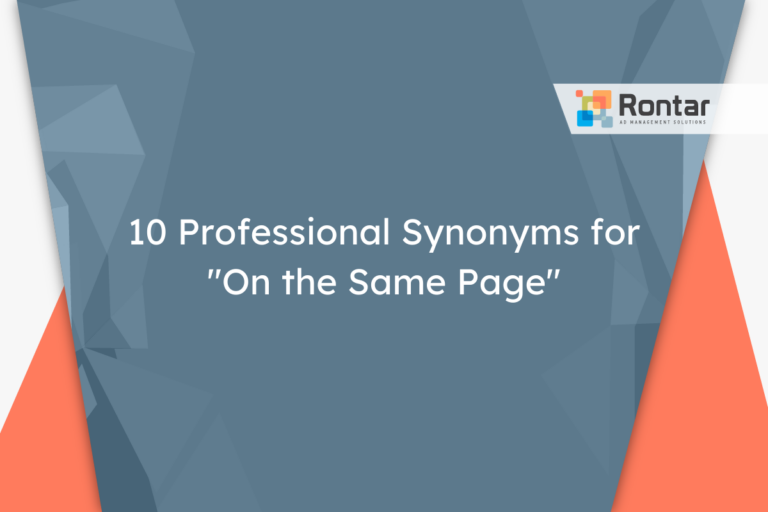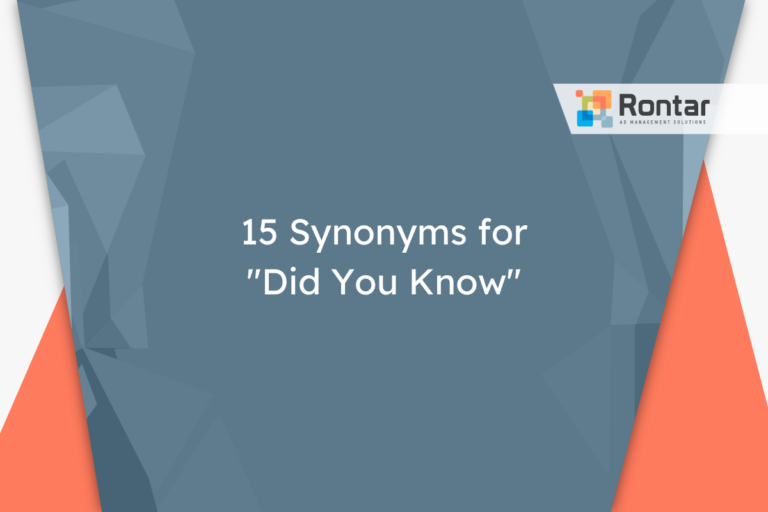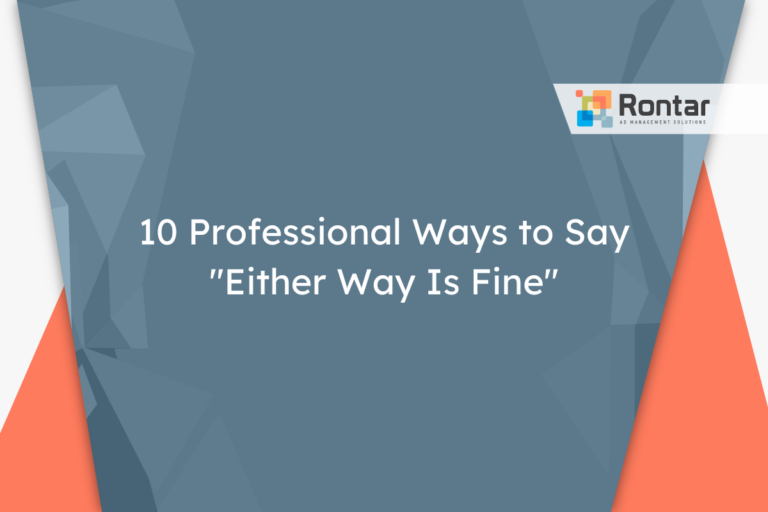11 Professional Synonyms for “Thank You for Getting Back to Me” in an Email

Getting a quick response to an email is always appreciated, but figuring out the best way to say “thank you for getting back to me” can be tricky. It’s important to match your thanks with the tone of your relationship and the context of your email.
This article lists 11 professional and polite alternatives to help you express your gratitude in a way that fits every situation. Whether you need a formal or an informal thank you, we’ve got you covered.
Is It Professional to Say “Thank You for Getting Back to Me”?
Yes, it is professional, formal, and polite to say “thank you for getting back to me” in communication, especially in emails. This phrase is often utilized to acknowledge someone’s effort in responding or reverting back to your previous communication, showing appreciation for their time and contribution. It’s most suitable in scenarios where you were awaiting a response on a necessary matter, whether it be for approvals, clarifications, or any updates. This phrase helps in maintaining a positive and courteous relationship with your email correspondents.
Here’s an example of how this phrase can be used within an email:
Hi Samantha, I hope this email finds you well. I wanted to express my gratitude and say thank you for getting back to me regarding the project timeline so promptly. Your input has been invaluable, and it allows us to move forward without any hitches. Should you need any more information from my side, please feel free to ask. Best regards, Marcus
Below are the pros and cons of using this phrase:
Pros:
- Shows appreciation and acknowledges the effort of the receiver.
- Enhances the positive relationship between the sender and receiver.
- Encourages continuous and open communication.
- Demonstrates good manners and professionalism.
Cons:
- Can become redundant if overused in frequent communications with the same person.
- May feel overly formal in very casual or intimate work relationships.
While “thank you for getting back to me” is a widely accepted and appreciated phrase, there might be situations where someone would want to use an alternative phrase. This could be due to a desire to diversify language, avoid repetition, or adjust the level of formality according to the relationship with the recipient. In such cases, exploring synonyms or other expressions to convey the same sentiment can refresh the way appreciation is exhibited, making each communication feel more personalized and thoughtful. Finding the right synonym or alternative will depend on the context, tone, and relationship between the parties involved.
11 Other Ways to Say “Thank You for Getting Back to Me” in an Email
Here are some alternative ways to say “thank you for getting back to me” that can match different tones and situations in your emails:
- Thank you for your swift reply.
- I appreciate your prompt response.
- Thank you for taking the time to respond.
- Many thanks for getting back to me so quickly.
- Thank you for your response.
- I appreciate your reply.
- It’s great to hear back from you.
- I’m glad you got back to me.
- Thanks for getting back in touch.
- I appreciate your getting back to me so fast.
- Thanks so much for replying.
1. Thank you for your swift reply.
This alternative is both professional and polite, similar to the original phrase. It emphasizes the speed of the reply, showing appreciation for the quick turnaround. This phrase is best used in professional settings where time is of the essence and you want to acknowledge the promptness of the response.
When you’re on a tight deadline and someone responds quickly, this phrase perfectly captures your gratitude. It conveys a sense of urgency and appreciation for efficiency without compromising the formality of your message.
Here’s a sample email using this phrase:
Hi Trevor, I just wanted to express my thank you for your swift reply. Your quick response has helped us to move forward with the project without any delays. Best, Lina
2. I appreciate your prompt response.
This phrase is professional, emphasizing gratitude for the timely nature of the reply. It’s slightly more formal than the original, making it a great choice for business or formal academic communications where you want to convey respect and appreciation.
This alternative is particularly suited for situations where the response from the other person was not only quick but also contained necessary or helpful information. It highlights both the speed and the quality of the reply.
We recommend using this phrase in your next email:
Hello Mark, I want to say I appreciate your prompt response to my inquiry yesterday. Your detailed explanation has clarified all my concerns. Kind regards, Sophie
3. Thank you for taking the time to respond.
This phrase feels a bit more personal and polite than the original. It’s suitable for both professional and informal settings because it shows recognition for the effort the recipient made to reply. This choice works well when the response you received was detailed or required some time to compose.
When you’ve received a particularly thorough response or when you know the other party is very busy, this phrase expresses your appreciation for their effort and time effectively.
A sample email with this alternative:
Hi Gregory, Thank you for taking the time to respond with such a comprehensive overview of the project requirements. Sincerely, Emma
4. Many thanks for getting back to me so quickly.
This synonym is both polite and slightly less formal, making it a versatile choice for many situations. Like the first alternative, it emphasizes quickness but adds a touch of warmth through “Many thanks.” This phrase is especially fitting when you’re pleasantly surprised by the rapid reply and want to convey your gratitude warmly.
It’s particularly effective in emails where building or maintaining a friendly relationship is important, alongside the need for swift communication.
Here’s how you might use this in a message:
Hi Ben, Many thanks for getting back to me so quickly. Your efficiency is much appreciated as we work to finalize the contract details. Best wishes, Julia
5. Thank you for your response.
This option is the most direct synonym of the original phrase and is inherently professional and formal. It’s a safe choice for almost any type of email, especially in professional settings where you might not have a personal rapport with the recipient.
This phrase is best suited when you want to keep the message straightforward without focusing too much on the promptness or the detail of the reply but still wish to acknowledge that you have received it.
We recommend including this phrase in your emails like so:
Dear Mrs. Thompson, Thank you for your response to my application. I look forward to the possibility of discussing my candidacy further. Regards, Aaron
6. I appreciate your reply.
This alternative is both professional and polite, similar to “Thank you for your response.” It adds a slight personal touch with the use of “I appreciate,” making it suitable for instances where you want to express gratitude with a bit more emphasis on the appreciation aspect.
It fits well in professional contexts where you aim to build or maintain a positive relationship, acknowledging not just the fact of the reply but the value it brings to you.
A message example featuring this phrase:
Hi Caroline, I just wanted to say I appreciate your reply and the additional insights you provided about the project timeline. Cheers, Dylan
7. It’s great to hear back from you.
This phrase is more informal and personal, perfect for communications where you have an established relationship with the recipient. It’s less about the quickness or the details of the response and more about the pleasure of being in contact again.
This is well-suited for lighter professional contexts or semi-formal emails where maintaining a friendly tone is as important as the business at hand.
Example of this phrase in use:
Hi Alex, It's great to hear back from you. I've been looking forward to your thoughts on our collaboration. Kind regards, Michelle
8. I’m glad you got back to me.
This phrase conveys both relief and appreciation, making it somewhat more personal and slightly informal. It’s a good choice for instances where there was some uncertainty about receiving a reply, or the information was eagerly awaited.
This alternative shines in scenarios where the response has relieved some anxiety or where expressing personal relief is appropriate and adds to the conversational tone.
See how it works in an email:
Hello Jamie, I'm glad you got back to me with the budget estimates. This helps us move on to the planning stage with all the necessary details in hand. Best, Ryan
9. Thanks for getting back in touch.
This phrase is quite informal and suggests a level of familiarity between the sender and receiver. It’s great for situations where previous communications have established a rapport, or the setting is less strictly professional.
Choose this wording when the act of re-establishing communication is as noteworthy as the content of the message itself, reinforcing the value of the ongoing connection.
Here is a sample email:
Hi Vanessa, Thanks for getting back in touch. I've missed our brainstorming sessions and can't wait to catch up on everything. Warmly, Nate
10. I appreciate your getting back to me so fast.
This phrase puts a strong emphasis on the speed of the reply and is both professional and polite. It differs from the original by including a personal touch with “I appreciate,” making it a bit more direct in expressing gratitude.
It’s particularly applicable when the quick response from your contact has a significant positive impact on your workflow or decision-making process.
An example in an email:
Hi Logan, I cannot express enough how much I appreciate your getting back to me so fast. Your quick feedback is helping us to meet our project deadlines with ease. Thankfully, Erin
11. Thanks so much for replying.
This is an informal and warm way to express gratitude, adding a personal and appreciative tone to the message. It’s less about the formality and more about conveying genuine thanks.
This phrasing is best for emails where you want to emphasize your personal appreciation and when a friendlier, less formal tone is appropriate.
Here’s how you might use it:
Hey Jordan, Thanks so much for replying. Your input on the project proposal was exactly what we needed to move forward. All the best, Kiera
Final Thoughts
Choosing the right way to say “thank you for getting back to me” in an email makes a big difference in how your message is received. The 11 alternatives we’ve discussed provide a range of options from formal to informal, ensuring you can find the perfect fit for any situation. It’s all about showing appreciation for someone’s response in a way that strengthens your connection. By picking the right phrase, you not only convey gratitude but also encourage positive ongoing communication.






